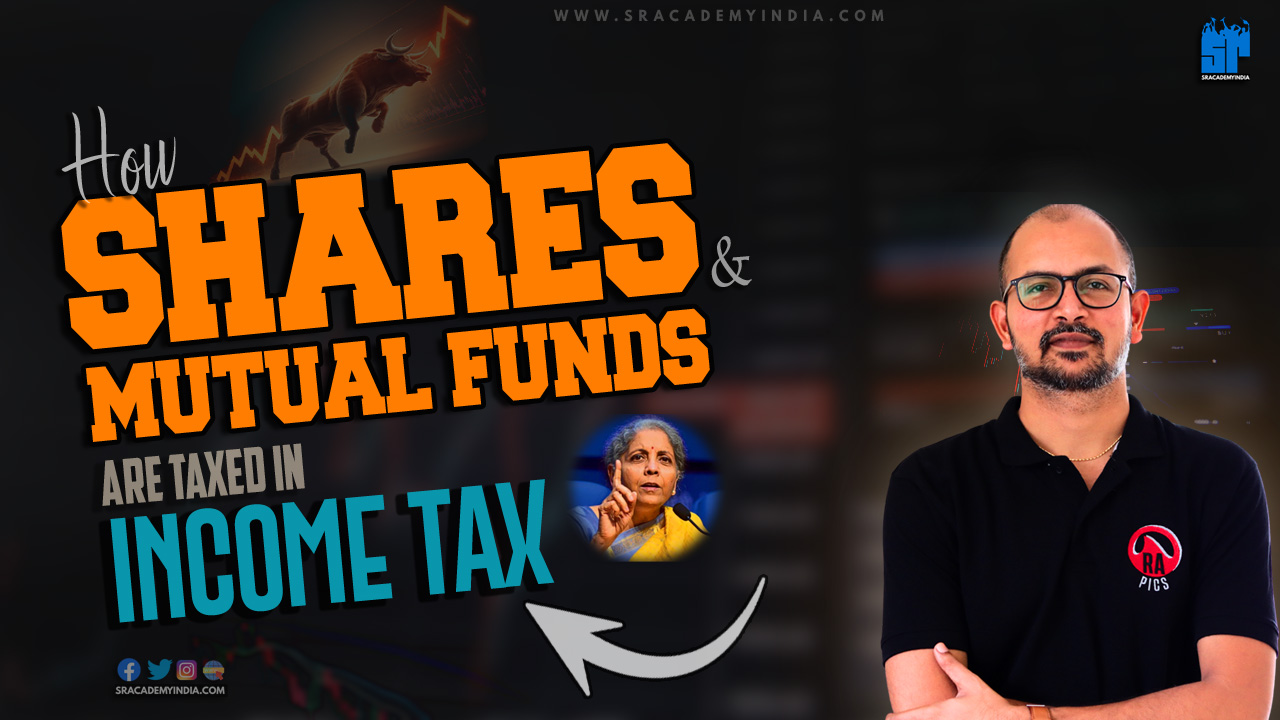Introduction
Taxation of Shares and Mutual funds is a little complicated, unlike the regular slab. Since these incomes are taxable at special rates, it is important to understand the provisions applicable to them to get the complete picture of their taxation.
In this article, let’s understand the taxation of LTCG on Shares and Mutual Funds. But before that let’s quickly understand what is a Short-term Capital Gain (STCG) & a Long-term Capital Gain (LTCG).
Long-term vs. short-term capital gain
Any gain arising from the sale of a long-term capital asset is a Long-term Capital Gain (LTCG) and the gain arising from the sale of a short-term capital asset is a Short-term Capital Gain (STCG).
Generally, if one holds any Capital Asset up to 36 months from the date of its acquisition, it is a Short-term Capital Asset (STCA). If holding period is more than 36 months, it will be a Long-term Capital Asset (LTCA). Whereas for Shares and Mutual Funds (MFs), to determine whether they are LTCA or STCA the period of holding to be considered is 12 months.
For instance, X bought 100 no’s of Reliance shares on 1.6.22 @ Rs. 200 each and sold all shares on 20.4.23 @ Rs. 250 each.
| Particulars | Amount in Rs. |
| Sale value (100 no’s * Rs. 250) | 25,000 |
| Buy value (100 no’s * Rs. 200) | 20,000 |
| Short Term Capital Gain | 5,000 |
Since X held these shares for less than 12 months (from 1.6.22 to 20.4.23), these shares will be Short-term Capital Assets (STCA) and the gain arising from such transfer will be Short-term capital gain (STCG).
Taxation of Long-term Capital Gains (Sec 112A)
Conditions
- The asset should be either Equity shares in a company, a unit of an equity-oriented fund (refer note1 below), a unit of business trust or units of ULIP [to which sec 10(10D) exemption is not available due to 4th & 5th proviso]
- Securities Transaction Tax (STT) (refer note2 below) has to be paid BOTH at the time of acquisition & sale
If both these conditions are satisfied then gain arising from such sale of such capital assets would be taxable under sec 112A.
Tax Rate
Such gain is taxable @10% on the capital gain exceeding Rs. 1 Lakh.
So if you have sold any equity shares / equity-oriented MFs held for more than 12 months, and realised any profit from such transaction, then such gain is taxable under section 112A.
If you held such shares / MFs for less than 12 months and earned any profit from the sale, the same will be taxable either under sec 111A (if STT is applicable) or as per your slab rates (if STT is NOT applicable).
Practical Understanding
Let’s understand the concept with the help of an example:
Suppose, X bought 100 no of Reliance shares on 1.5.22 at Rs. 1,000 each. So total buy value is Rs. 1,00,000. On 1.7.23, X sold all the shares at Rs. 2,500 each for a sale consideration of Rs. 2,50,000. Assuming STT applicable both at the time of acquisition and sale.
| Particulars | Amount in Rs. |
| Sale value (100 no’s * Rs. 2500) | 2,50,000 |
| Buy value (100 no’s * Rs. 1000) | 1,00,000 |
| Long Term Capital Gain | 1,50,000 |
| (-) Exemption | 1,00,000 |
| Taxable Long Term Capital Gain | 50,000 |
In the above example, since the X held shares for more than 12 months it becomes LTCA and the resultant gain from sale of LTCA will be LTCG. Since STT is also applicable, LTCG is taxable under sec 112A.
Accordingly, any gain in excess of Rs. 1 lakh will be taxable at 10% and hence tax payable would be Rs. 5,000 (Rs. 50,000 * 10%)
Points to remember:
While calculating capital gain under sec 112A, please make sure to remember the following points:
- LTCG on Preference shares, Debt-oriented MFs, Debentures, Bonds, Govt Securities and Unlisted equity shares are not covered under sec 112A. Hence these gains will be taxed under sec 112.
- Sec 87A Rebate is not available.
- Resident Individuals and HUF can claim an unexhausted basic exemption limit.
- Since this income is chargeable at Special rates, Regular slab rates will not be applicable. If any person has both special income (which is chargeable at special rates) and normal income, then special incomes have to be separated and should be taxed at their respective rates.
- Anyone holding capital assets during any FY and no sale of Shares/MFs is involved need not pay any tax on it. So, no tax on unrealized gain unless the asset is sold and gain arises.
Note1: An equity-oriented fund is where either 65% of the proceeds are invested in equity shares of domestic companies or invested a minimum of 90% of such fund in another mutual fund which again invests a minimum of 90% of their proceeds in equity shares of domestic companies listed on recognised stock exchange.
Note2: STT will be applicable, for transactions that occurred on or after 1.10.2004
Conclusion
As you already aware of the fact that Rs. 1 lakh exemption is available to LTCG covered under this section, it is always better to plan your holdings to minimize the tax burden. Such careful planning will at least save 10% tax on your gains.
Hope you have enjoyed the article, thank you for your time.
